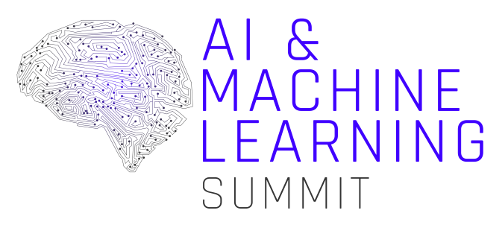For Authors
Call for papers
Call for tutorials
Call for workshops
Subject areas
Submission Instructions
Camera-ready Instructions
Author FAQ
UAI 2017 Program Schedule
Booklet
August 11th: Tutorials
| Time | Event |
|---|---|
| 08:45 - 10:15 | Tutorial 1: Methods and models for large-scale optimization |
| 10:35 - 12:05 | Tutorial 2: Representing and comparing probabilities with (and without) kernels |
| 14:05 - 15:35 | Tutorial 3: Deep Generative Models |
| 16:00 - 17:30 | Tutorial 4: Machine learning in healthcare |
August 12th: Main conference
| Time | Event |
|---|---|
| 07:30 - 08:30 | Opening hours registration desk |
| 08:30 - 08:40 | Welcome |
| 08:40 - 09:40 | Keynote talk |
| 09:40 - 10:40 | Oral Session: Deep Models |
| 10:40 - 11:10 | Coffee Break |
| 11:10 - 12:10 | Oral Session: Machine Learning |
| 12:10 - 14:00 | Lunch break |
| 14:00 - 15:00 | Keynote talk |
| 15:00 - 16:00 | Oral Session: Inference |
| 16:00 - 16:20 | Coffee Break |
| 16:20 - 17:20 | Oral Session: Learning |
| 17:20 - 17:50 | Poster Spotlights |
| 17:50 - 19:50 | Poster Session |
August 13th: Main conference
| Time | Event |
|---|---|
| 08:30 - 09:30 | Keynote talk |
| 09:30 - 10:30 | Oral Session: Representations |
| 10:30 - 11:00 | Coffee Break |
| 11:00 - 12:20 | Oral Session: Reinforcement Learning |
| 12:20 - 14:10 | Lunch break |
| 14:10 - 15:10 | Keynote talk |
| 15:10 - 15:40 | Poster Spotlights |
| 15:40 - 16:00 | Coffee Break |
| 16:00 - 18:00 | Poster Session |
| 19:00 | Banquet Boarding Location (Google Maps) |
August 14th: Main conference
| Time | Event |
|---|---|
| 08:30 - 09:30 | Keynote talk |
| 09:30 - 10:30 | Oral Session: Causality |
| 10:30 - 11:00 | Coffee Break |
| 11:00 - 12:20 | Oral Session: Sampling |
| 12:20 - 14:10 | Lunch break |
| 14:10 - 15:10 | Oral Session: Bandits |
| 15:10 - 15:40 | Poster spotlights |
| 15:40 - 16:00 | Coffee Break |
| 16:00 - 16:45 | Business meeting |
| 16:00 - 18:00 | Poster Session |
August 15th: Workshops
StarAI
| Time | Event |
|---|---|
| 9:00 - 9:10 | Welcome and introduction |
| 9:10 - 10:10 | Invited Talk |
| 10:10 - 10:30 | Poster Spotlights (2-minute) |
| 10:30 - 11:30 | Break/Poster Session |
| 11:30 - 12:30 | Invited Talk |
| 12:30 - 14:00 | Lunch break |
| 14:00 - 15:00 | Contributed Talks |
| 15:00 | Poster Session |
Causality: Learning, Inference, and Decision-Making
| Time | Event |
|---|---|
| 8:45 - 9:00 | Welcome and Opening Remarks |
| 09:00 - 9:30 | Invited Talk: Algorithmic bias & other human-centric challenges in AI |
| 09:30 - 10:30 | Workshop papers: Causal Consistency of Structural Equation Models |
| 10:30 - 11:00 | Coffee Break & Posters |
| 11:00 - 11:30 | Workshop papers: Causal Discovery in the Presence of Measurement Noise: Identifiability Conditions |
| 11:30 - 12:00 | Workshop papers: SAT-Based Causal Discovery under Weaker Assumptions |
| 12:00 - 14:00 | Lunch & Poster Session |
| 14:00 - 15:00 | Invited talk: Towards a Decision-Theoretic Foundation for (Imprecise) Interventional Probabilities |
| 15:00 - 15:30 | Workshop papers: Algebraic Equivalence of Linear Structural Equation Models |
| 15:30 - 16:00 | Coffee Break & Posters |
| 16:00 - 16:30 | Workshop papers: Counting Markov Equivalence Classes by Number of Immoralities |
| 16:30 - 17:00 | Workshop papers: Probabilistic Active Learning of Functions in Structural Causal Models |
| 17:00 - 17:30 | Workshop papers: Learning Dynamic Structure from Undersampled Data |
| 17:30 - 18:40 | Causality in sister conferences (posters + short talks) |
| 18:40 | Closing remarks |
Bayesian Modelling Applications
| Time | Event |
|---|---|
| 9:00 - 9:45 | Invited talk: Probabilistic reasoning with complex heterogeneous observations and applications in geology and medicine |
| 09:45 - 10:35 | Paper Talks |
| 10:35 - 10:50 | Coffee Break |
| 10:50 - 11:35 | Tutorial: OpenMarkov, an open-source tool for probabilistic graphical models |
| 11:35 - 12:00 | Paper talk |
| 12:00 - 12:30 | Demo: IOOBN: a Modeling Tool using Object Oriented Bayesian Networks with Inheritance |
| 12:30 - 14:00 | Lunch break |
| 14:00 - 14:50 | Paper talks |
| 14:50 - 15:10 | Community forum: Quo vadis: Bayesian models in the age of "deep everything" |
Detailed Program Schedule
August 11th
| Time | Event |
|---|---|
| 8:45 - 10:15 | Tutorial 1
|
| 10:35 - 12:05 | Tutorial 2
|
| 14:05 - 15:35 | Tutorial 3
|
| 16:00 - 17:30 | Tutorial 4
|
August 12th
| Time | Event |
|---|---|
| 07:30 - 08:30 | Opening hours registration desk |
| 08:30 - 08:40 | Welcome |
| 08:40 - 09:40 | Keynote talk
|
| 09:40 - 10:40 | Oral Session: Deep Models
|
| 10:40 - 11:10 | Coffee Break |
| 11:10 - 12:10 | Oral Session: Machine Learning
|
| 12:10 - 14:00 | Lunch break |
| 14:00 - 15:00 | Keynote talk
|
| 15:00 - 16:00 | Oral Session: Inference
|
| 16:00 - 16:20 | Coffee Break |
| 16:20 - 17:20 | Oral Session: Learning
|
| 17:20 - 17:50 | Poster Spotlights |
| 17:50 - 19:50 | Poster Session |
August 13th
| Time | Event |
|---|---|
| 08:30 - 09:30 | Keynote talk
|
| 09:30 - 10:30 | Oral Session: Representations
|
| 10:30 - 11:00 | Coffee Break |
| 11:00 - 12:20 | Oral Session: Reinforcement Learning
|
| 12:20 - 14:10 | Lunch break |
| 14:10 - 15:10 | Keynote talk
|
| 15:10 - 15:40 | Poster Spotlights |
| 15:40 - 16:00 | Coffee Break |
| 16:00 - 18:00 | Poster Session |
| 19:00 | Banquet Boarding
|
August 14th
| Time | Event |
|---|---|
| 08:30 - 09:30 | Keynote talk
|
| 09:30 - 10:30 | Oral Session: Causality
|
| 10:30 - 11:00 | Coffee Break |
| 11:00 - 12:20 | Oral Session: Sampling
|
| 12:20 - 14:10 | Lunch break |
| 14:10 - 15:10 | Oral Session: Bandits
|
| 15:10 - 15:40 | Poster spotlights |
| 15:40 - 16:00 | Coffee Break |
| 16:00 - 16:45 | Business meeting |
| 16:00 - 18:00 | Poster Session |
Poster Sessions August 12th
|
Poster Sessions August 13th
|
Poster Sessions August 14th
|
Follow @uai2017








Golden Sponsor

Golden Sponsor

Golden Sponsor

Bronze Sponsor

Bronze Sponsor

Training session Sponsorship

Startup Sponsor

Media Sponsor
